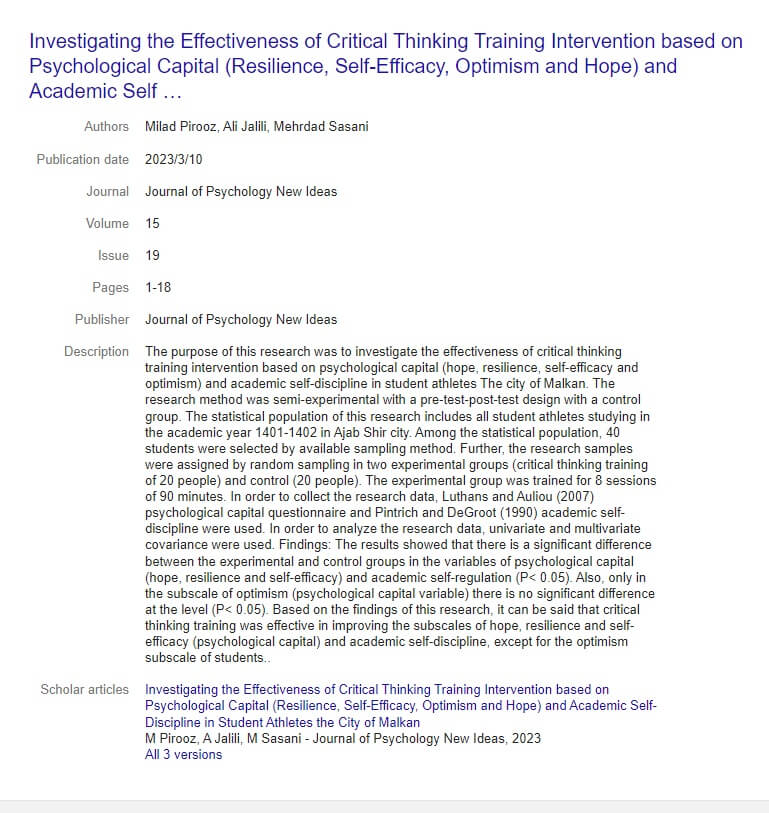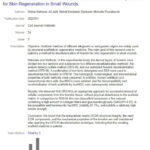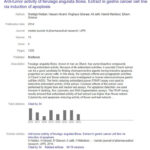Investigating the Effectiveness of Critical Thinking Training Intervention based on Psychological Capital (Resilience, Self-Efficacy, Optimism and Hope) and Academic Self

Investigating the Effectiveness of Critical Thinking Training Intervention based on Psychological Capital (Resilience, Self-Efficacy, Optimism and Hope) and Academic Self…
Authors Milad Pirooz, Ali Jalili, Mehrdad Sasani
Publication date 2023/3/10
Journal Journal of Psychology New Ideas
Volume 15
Issue 19
Pages 1-18
Publisher Journal of Psychology New Ideas
Description The purpose of this research was to investigate the effectiveness of critical thinking training intervention based on psychological capital (hope, resilience, self-efficacy and optimism) and academic self-discipline in student athletes The city of Malkan. The research method was semi-experimental with a pre-test-post-test design with a control group. The statistical population of this research includes all student athletes studying in the academic year 1401-1402 in Ajab Shir city. Among the statistical population, 40 students were selected by available sampling method. Further, the research samples were assigned by random sampling in two experimental groups (critical thinking training of 20 people) and control (20 people). The experimental group was trained for 8 sessions of 90 minutes. In order to collect the research data, Luthans and Auliou (2007) psychological capital questionnaire and Pintrich and DeGroot (1990) academic self- discipline were used. In order to analyze the research data, univariate and multivariate covariance were used. Findings: The results showed that there is a significant difference between the experimental and control groups in the variables of psychological capital (hope, resilience and self-efficacy) and academic self-regulation (P< 0.05). Also, only in the subscale of optimism (psychological capital variable) there is no significant difference at the level (P< 0.05). Based on the findings of this research, it can be said that critical thinking training was effective in improving the subscales of hope, resilience and self- efficacy (psychological capital) and academic self-discipline, except for the optimism subscale of students..
Scholar articles Investigating the Effectiveness of Critical Thinking Training Intervention based on Psychological Capital (Resilience, Self-Efficacy, Optimism and Hope) and Academic Self- Discipline in Student Athletes the City of Malkan
M Pirooz, A Jalili, M Sasani – Journal of Psychology New Ideas, 2023
All 3 versions


